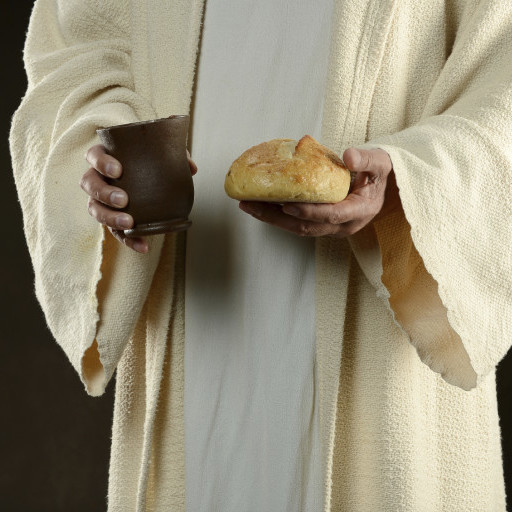From the Lord’s Prayer phrase “Our Father who art in Heaven”
This adjective has many deep meanings relating to God’s plan to save all His children who will come unto Jesus Christ through keeping covenants made through the ordinances of the gospel: Faith, Repentance, Baptism and the receiving of the Holy Ghost by the laying on of hands by those in authority who hold the Melchizedek Priesthood. God, the Father, loves equally even those who will not come unto Him in the strait and narrow way since they also are His children and the object of His desire is His attempts to save them and answer their righteous prayers.
We, the entirety of human history, are all God’s children. He is the Father of our spirits, created Adam and Eve in His own image, and we are born to parents on earth who descended from Adam and Eve. In this way, God, the Father, is directly responsible for our two births; the birth of our spirit body and the birth of our physical body through the effects of the creation of Adam and Eve.
When we use the word “our” in the Lord’s Prayer, we are invoking a common bond we have with all who have ever lived on the earth, who now live, and those who will yet live till the end of time. We are humbled by this fact. How can we all pray together unless we love each other with agape[i], the pure love of Christ, true charity[ii], forgiving each other as we are forgiven by God, the Father. When we stand before God, the Father, with Jesus Christ, the great Mediator, to be judged, we can blame no man for our sins, mistakes, sufferings. We have to accept responsibility for our own choices. When we try to pray the Lord’s prayer, using the word “our”, we have to act as if everyone else has repented, and we have no animosity towards them. So we can humble ourselves and see in our mind’s eye, as we pray, all of God’s children bending the knee and worshipping Jesus Christ as their Lord and Savior. We are all praying our hearts out to find out why us, why this earth, what is our purpose here and where are we going.
As His children, He has commanded us to pray always lest we enter into temptation and fall from grace, the redeeming power of Jesus Christ. We are commanded to pray unto the Father in the name of Jesus Christ.[iii] The name of Jesus Christ means “God’s salvation”[iv] and “the anointed one” in Biblical Hebrew.[v] Whenever we close a prayer in the name of Jesus Christ, we are calling upon God to save us through the Annointed One. In the Old Testament, prophets, priests, and kings were anointed to fulfill all righteousness, foreshadowing the return of Jesus Christ as Prophet, High Priest and King. As Prophet, He would declare God’s word. He even declared that He only said those things which God, the Father, had commanded Him. As High Priest, He entered the symbolic Holy of Holies and sprinkled His blood on the sacred ground of Gethsemane and the Way of the Cross and on Golgotha. He was the last sacrifice under the law of Moses which was fulfilled in Him, the greatest of all. As the Great High Priest, the Father had given Him power to lay down His life, and power unique to Him to raise it up from the dead in the Resurrection. As an anointed King, and descended from Kings through His earthly mother’s line, He came to establish His kingdom of truth, wherein all who follow the truth would find it and be blessed by it.
Since “our” in the Prayer unifies all of God’s children in one mighty prayer, it foreshadows the end of time when every knee shall bow and confess that Jesus is the Christ, the Savior of mankind.[vi] At the end of time there will be a marriage feast of all the saved and the Savior, all rejoicing in the great gift of salvation from death and hell afforded to us by the gift of God the Father to us in His Son.[vii]
God is very careful with His use of these possessive adjectives like our, my, his, her, their, your in the scriptures. He declared at the baptism of Jesus, “This is my beloved Son, in whom I am well pleased. Hear ye him.” “My” here denotes possession. Jesus later declares after His resurrection, “I go to my Father and your Father”. Here there is a distinction made for emphasis. Jesus Christ is son of the Father of us all in many ways we are not. He was unfailingly obedient, one of the prerequisites for a sacrificial lamb to be without blemish or sin. He was conceived by miraculous means in a virgin.[viii] None of us have been born this way. He is one with the Father in thought, word and action. He said, “The Son can do nothing of himself, but what he seeth the Father do: for what things soever he doeth, these also doeth the Son likewise.”[ix] But He told Mary, “your Father”, implying that likewise she was a daughter of God who could become one with the Father as Jesus Christ had and had taught the disciples at the Lord’s Supper.[x] If we all become one with the Father as Jesus Christ did, then we can truly say with deep feeling for all of humanity, “Our Father, who art in Heaven” In another scripture, it says, “For He will give His angels charge concerning you.”[xi] God uses one group of his creations to bless another group of his creations because they in the end, except for the sons of Perdition, are all His. He created them, He is their Father, He has all power through His Son to save every soul on conditions of repentance. Jesus Christ showed us the way to become truly sons and daughters of God.
“Our” implies that we belong to a group. We can make that group small, like the small band of disciples following Jesus, or we can make that group large like Paul said: “The Spirit itself beareth witness with our spirit, that we are the children of God”[xii]. In Hebrews it says, “Furthermore we have had fathers of our flesh which corrected us, and we gave them reverence: shall we not much rather be in subjection unto the Father of spirits, and live?” And John also says the same thing:
“ Beloved, now are we the sons of God, and it doth not yet appear what we shall be: but we know that, when he shall appear, we shall be like him; for we shall see him as he is.”[xiii]
[i][i] Greek New Testament has this word in two places: 1 John 4:8, 16 “God is love (agape)” A related word agapao is found 143 times in the New Testament. It means to be full of good will to all, the benevolence of God in providing salvation for all, the charitable acts of Christians and their love for one another, and most importantly, the love of Christ in suffering for us. See: https://biblehub.com/greek/25.htm
[ii] Moroni 7:47
[iii] John 16:23-24 “In that day you will no longer ask me anything. Very truly I tell you, my Father will give you whatever you ask in my name”
[iv] https://www.mit.edu/~rei/spir-jesusname.html#:~:text=Most%20dictionaries%20will%20translate%20Jesus,a%20passive%20quality%20to%20God.&text=Yah%20is%20short%20for%20Yahweh,%2C%20save%20alive%2C%20rescue.%22
[v] https://mfa.gov.il/MFA/IsraelExperience/Religion/Pages/Image_of_Messiah_in_Judaism_and_Christianity.aspx#:~:text=The%20Hebrew%20word%20%22Mashiach%2C%22,such%20as%20the%20prophet%20Elisha).
[vi] Revelation 5:13, Isaiah 45:23, Romans 14:11, Philippians 2:9-11
[vii] Revelation 19:6-9
[viii] Luke 1:35 KJV “And the angel answered and said unto her, The Holy Ghost shall come upon thee, and the power of the Highest shall overshadow thee: therefore also that holy thing which shall be born of thee shall be called the Son of God.“
[ix] John 5:19 KJV
[x] John 20:17 Jesus saith unto her, Touch me not; for I am not yet ascended to my Father: but go to my brethren, and say unto them, I ascend unto my Father, and your Father; and to my God, and your God.
[xi] Luke 4:10-11 KJV, Psalm 91:11-12 KJV, Moroni 7:29, D&C 84:88
[xii] Romans 8:16 KJV
[xiii] 1 John 3:2 KJV

